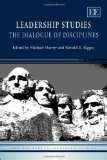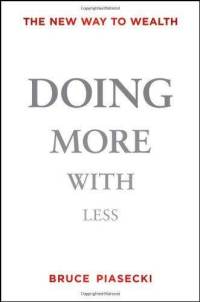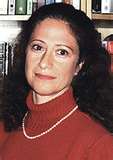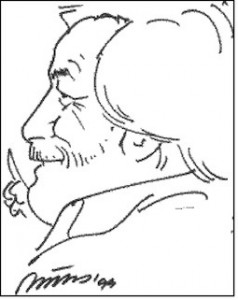The Language of Leadership: A Departure
I am taking something of a departure from my normal practice of providing highlights of a series of books related to the study and practice of leadership. I have found one chapter in one book to be so meaningful to me that I want to share it with you in some detail and add some of my own perspectives. I will offer some brief comments on a second book.
Before I continue, I want to be very clear that what follows is not intended solely for an academic audience, but for those in the roles of leaders, those who aspire to such roles and those who wish to support them through consulting, training and coaching. What follows is relevant to every thought, idea, decision, action and relationship in all contexts of leading.
For various reasons, I think the most important works on the subject of leadership to emerge in the last decade are as follows:
David V. Day et al (2009). An Integrative Approach to Leader Development: Connecting Adult Development, Identity and Expertise. New York: Routledge.
Mark Edwards (2010). Organisational Transformation for Sustainability. New York: Routledge.
Donna Ladkin (2010). Rethinking Leadership: A New Look at Old Leadership Questions. Northampton, MA: Edward Elgar.
And several of the works of Joanne Ciulla that she has edited with important chapters like Antonio Marturano (2008). “Understanding Leadership: Is It Time for a Linguistic turn?” in Joanne B. Ciulla (ed.) Leadership and the Humanities, vol. 3 of Leadership at the Crossroads. Westport, CT: Praeger, pp. 117-31.
 In particular I would point out Cuilla’s chapter, (2011), “What Philosophers Find in the Question: What is a Leader?” in Michael Harvey and Ronald E. Riggio, Eds. Leadership Studies: The Dialogue of Disciplines, Northampton, Massachusetts: Edward Elgar.
In particular I would point out Cuilla’s chapter, (2011), “What Philosophers Find in the Question: What is a Leader?” in Michael Harvey and Ronald E. Riggio, Eds. Leadership Studies: The Dialogue of Disciplines, Northampton, Massachusetts: Edward Elgar.
All of these works are written by academics. What they bring to all of us, however, is clarification about ways in which we make sense and meaning of the phenomena of leadership. If you are in a formal management role, you periodically make sense and meaning of how you lead, how others relate to the way you lead, how factors beyond your control and even outside of the immediate relationships involving leading influence outcomes. You are aware of the different ways people make sense of what it means to lead, what it means to be effective, and what constitutes “good” leading, ethical leading.
If you are in the role of a “helper” of others to lead, then you bring assumptions, models, perspectives, values and desired outcomes to your work. You have no doubt thought about these things in terms what will be effective “helping” and what constitutes “good” helping.
If you are an academic or a student seeking a higher degree (probably not an MBA or other “trade” degree, unless you are consciously exceptional), then thinking about the kinds of questions addressed here may come more naturally. Nevertheless, you are equally challenged to examine assumptions, values, etc.
Most of the above work has been reviewed in one way or another in Integral Leadership Review. Marturano is the Italian Bureau Chief for Integral Leadership Review and he has contributed in many ways to this publication. His work in the area I am about to discuss is leading me to hope we can do the first topic-focused special issue of ILR under his leadership. For now, I want to concentrate on the chapter by Cuilla’s whose work, regretfully, has been neglected for far too long in this publication.
All of the books and chapters cited above address questions of philosophy in their treatment of the subject of leadership. Each makes an important contribution to our unfolding ability to make sense and meaning from these phenomena for which we have convenient labels and variable meaning. Ciulla makes very clear how different authors on leadership address meaning in relation to leadership. She draws on Wittgenstein to point out that meaning of words is related to how we use them.
I have been arguing for several years that the study and practice of leadership is made less effective by how we use the terms associated with it. I wish I had read Ciulla’s work as I was making the case that we need to clean up our language. She makes it very clear. She draws on various philosophical approaches and points out,
One thing that all philosophic traditions have in common is that they all do ethics… another thing that most philosophic traditions possess is an interest in language, because in many ways, our language is our world. No wonder there is so much emphasis on trying to define what is a leader, what is leadership! The answers most useful are contextual. The implication is that there is no one definition. Those we develop are best considered to be stipulative definitions in that they rely on context for a determination of definition. Think about it. How does your definition of leader shift from the family to the nation, from a business context to a political context? It is likely that any one of us will find some similarities among these contexts, but I suspect most of these similarities are built on the assumptions and values we bring with us to the defining moment. Hence definitions are stipulative in the sense that they are not only context driven but, like the cell-wave challenge in quantum physics, are dependent upon the observer, the one doing the defining. (p. 57)
Ciulla explored the work of Joseph Rost and others and mentions two insights. (1) The differences among definitions of the English term “leader” are normative. They are about what people think a leader should be. I have argued that this is why the term leader is most usefully thought of as a role, not a person. A role is a set of expectations individuals have about what constitutes effective and ethical performance. In other words, what someone must be and do for me to think of them as a leader. (2) Asking, “What is a leader?” is equivalent to asking, “What is a good leader?” There is a direct relationship to the evaluation of what is being done and what should be done.
I would suggest that an “integral” approach to developing individuals to step into leader roles is full of shoulds. In this sense it is guru-driven. They promote a way of thinking and a way of practicing to prepare for the leader role. One of its strengths is a set of practices that support such preparation. And it is important to keep in mind that the selection of practices are essentially foundational, just as learning to read a financial statement or knowing how to use design thinking may be in a given context. Nevertheless, many of these practices are foundational to being in the world, not only leading in it.
Ciulla calls attention to Mark Woodhouse’s distinction between guru and philosopher. In summary they are
- Gurus seek truth as a means to achieve a state of mind such as serenity. Philosophers see, truth as an end in itself…
- Gurus’ philosophical insights are often psychological generalizations about human nature.
- Gurus’ assert interesting themes; philosophers defend their claims of truth based on rational arguments.
I suspect such a comparison, in particular the third point, would rub many integralists the wrong way. That would constitute an exclusive emphasis on the right hand quadrants. They would add to it a spiritual perspective or set of insights, perhaps.
Nevertheless, in our explorations of leading, the leader role and the phenomena of leadership from an integral perspective, we need to be mindful of these observations. When are our prescriptions the result of our own seeking for serenity? How do we abuse psychological generalizations? How do we dismiss the partnership of rational arguments in our explorations? How do we abuse the language and fail to consider the contextual and stipulative requirements for generative learning and practice?
Ciulla concludes:
- “[Y]ou are only a leader if people think you are.” and
- “[T]he word ‘leader’ has a built-in normative aspect to it.” (p. 63)
These two conclusions affirm the treatment of the term leader as a role. Yet, it continues to confound clarity about the term leader. Is it a role or is it a person? Well, it is what you say it is. My final question then is, does your way of using your sense and meaning making and the language you choose clarify or obfuscate your own understanding of what it means to lead and your ability to decipher what is meant by others?
NOTE: There is much additional richness in this volume edited by Harvey and Riggio. It is highly recommended.
______________________
 Bruce Piasecki (2012). Doing More with Less: The New Way to Wealth, Advance Uncorrected Proof*: John Wiley & Sons, Inc.
Bruce Piasecki (2012). Doing More with Less: The New Way to Wealth, Advance Uncorrected Proof*: John Wiley & Sons, Inc.
The following quotation is representative of what you will find in this personalized account by an individual who has been successful in business for many years.
So much for industry, my friends, and attention to one’s own business; but to these we must add frugality, if we would make our industry more certainly successful.
– Benjamin Franklin, The Way to Wealth
It should not be surprising to find that we are looking for ways to respond, not only to the current economic crisis (I think it is far from over) but to the transformational reordering of resources the world is facing, whether we look for the shift of wealth to countries like China and India and elsewhere, or to the growing resource gap between the wealthy and the rest of us.
Piasecki sees a strong relationship between our inherent spirit of competition and the importance of frugality. Long before the crises of today he has been engaged in this relationship in his own businesses. In this highly personalized account we are invited to consider the insights he has generated over the years that relate to this relationship. In fact the author hopes we will use the book as a learning tool as he considers “the entire role you play in fixing society’s many woes—from family and friends to your firm and the world at large. That is your true wealth.” (p. 5) There is freedom and magic to be had by practicing frugality.
His attention is on three things organizations run on – money, people, and rules. I find treatments like his useful to me, personally, because much of my life I have treated the money thing like it wasn’t important. I have been less than frugal. I have come to desire less and less in material wealth, while wanting more and more financial assurance that I can meet basic needs in what is left of this life of mine and those needs of my family and friends. Piasecki offers us some principles around which he has constructed this book:
1. Do not forget the people and the rules in the act of making money.
2. “Return to a classic sense of productive restraint, to being agents for the good in this world by doing less.” (p.11)
The money squarely relates to frugality. Excess is dehumanizing. Therefore, it is important to attend to human well being ethically and according to the rules. This failure to work by the rules and for well being of all is the source he identifies of many of the many examples of business corruption and social disintegration in the United States, while also being at the root of many global and regional problems and conflicts. In fact, he offers the opinion that many, many people in business today are “knuckleheads,” Knuckleheads are those who have lost touch with the human heart and practice lustful management and leadership.
The more I began thinking about this, the more I realized knuckleheads had become eloemental in business, almost universal in the spectrum of industrial activity after World War II. (p.34)
Strewn with personal and quotation insights, this small book is rich with food for thought.
_____________________________
Other Publications to Note (some may receive further review in future issues of ILR):
The Washington Post recently listed their top current leadership books.
Collins, J. Great by Choice
Isaacson, W. Steve Jobs
Sims, P. Little Bets
Hurley, R. The Decision to Trust
Amabile, R. and Kramer, S. The Progress Principle
Myers, B. Take the Lead
Useem, M. The Leader’s Checklist
Kouzes, J. and Posner, B., Credibility
_____________
Jennifer Garvey Berger (2012). Changing on the Job: Developing Leaders for a Complex World, Advanced Uncorrected Page Proof*. Stanford, California: Stanford Business Books.
Susan Cain (2012). Quiet: The Power of Introverts in a World That Can’t Stop Talking. New York: Crown Publishers.
Marjolein Lips-Wersma and Lani Morris (2011). The Map of Meaning: A Guide to Sustaining Our Humanity in the World of Work. Sheffield, UK: Greenleaf Publishing Limited.
Martin N. Davidson (2011). The End of Diversity As We Know It: Why Diversity Efforts Fail and How Leveraging Difference Can Succeed. San Francisco: Berrett-Koehler.
Mario Raposo, David Smallbone, Karoly Balaton and Lilla Hortovanyi, Eds. Entrepreneurship, Growth and Economic Development: Frontiers in European Entrepreneurship Research. Northampton, Massachusetts: Edward Elgar.
*Noting “advance copies” may be relevant for the content of future reviews.



Personally, I believe that the basic foundation or essence of leadership is character. Character and/or leadership is more than talk. Anyone can say he/she has integrity, but action is the real indicator of character. It is what you sow, what you think, and what you do. Your character determines who you are, who you are then determines what you see. What you see determines what you do. That’s why you can never separate a person’s character from his/her actions. Actions speak louder than words.